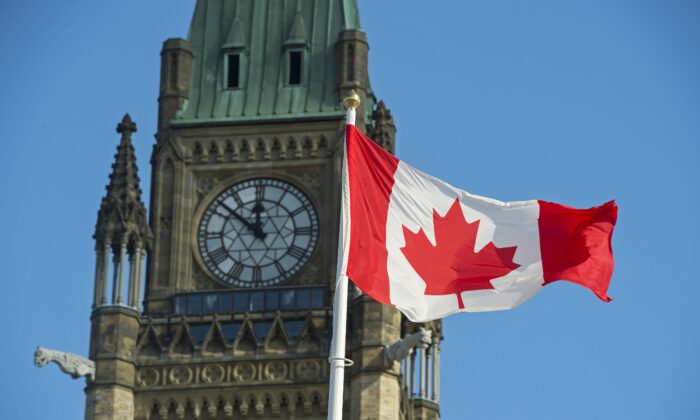By Cory Morgan
Spending promises from all of the major parties in the election have been pouring in hard and heavy.
And with three weeks left in the campaign, we can expect proposed spending to reach even more staggering levels, as party leaders try to buy the electoral love of citizens. While the parties are long on expenditure promises, they are terribly short on details when it comes to how we are going to pay the bills.
In response to the pandemic, Canada’s government has increased spending levels at a rate unseen outside of wartime periods. The federal deficit went from $21.77 billion in fiscal 2019/2020 to a breathtaking $314 billion in fiscal 2020/2021.
No party has released a fully costed plan to balance the budget, so we have to draw interpretations from what they have said on the issue.
The Liberals have said little on how they plan to balance the budget. If anything, they have worked pretty hard to avoid the subject whenever possible. In a candid moment, Prime Minister Justin Trudeau outright said that he doesn’t think about monetary policy.
Somebody within the Liberal brain trust had better start thinking about those policies soon though, as the current path isn’t sustainable. Even before election promises are taken into account, it would take until 2070 to balance the budget under the current course of spending.
The Liberal budget release did vow to return to “small deficits” by 2025, but didn’t say how. With the full release of the Liberal election platform on Sept. 1, there is little indication that they will be addressing balanced budgets during this campaign, much less pursuing them.
Conservative Party (CPC) leader Erin O’Toole has vowed to balance the budget within ten years through ramping up the economy without cutting spending. O’Toole will have his work cut out for him considering the Canadian economy contracted in the second quarter of 2021. It would take an incredible economic boom to generate the kind of revenue required to balance the budget within a decade without cutting spending.
The CPC release has five points within it. The points speak of taking a “reasonable approach” and investing in targeted stimulus measures in order to “get back to robust economic growth.” The release was short and vague about how any of these budget goals would be accomplished. Still, credit has to be given to the Conservatives for their acknowledgment that the budget has to be balanced eventually.
The NDP has always been consistent in that they never concern themselves with balanced budgets. Leader Jagmeet Singh has made a plethora of spending promises for everything from expanded public health care to public housing.
The NDP does want to increase government revenues through a wealth tax that they feel would “raise revenue while lowering inequality.” They speak of taxing the “ultra-rich” and call for the wealthy to pay their “fair share.” While those buzz terms sell well to left-leaning voters, those sorts of taxation policies rarely raise as much revenue as anticipated when imposed. The NDP stays true to their tenets of socialism if nothing else, and they can be credited for their honesty.
The People’s Party (PPC) under Maxime Bernier is the only party that speaks of cutting spending in order to balance the budget. Bernier has vowed to cut corporate welfare, the CBC, pandemic spending, and equalization, along with extracting the federal government from all spending areas that are within provincial and municipal jurisdiction. It is a bold plan and it is by far the most realistic one when it comes to balancing the budget.
While the Canadian public would go haywire if such cuts were ever to be implemented, we likely need not worry about it. The PPC is making inroads, but it is unlikely that they will form the next government. They are to be commended for being the lone party willing to propose balancing the budget through spending cuts.
The Green Party still hasn’t released a platform, and asks people to refer to their 2019 platform. They really don’t speak of the budget at all and have no proposals on how to deal with it. Their party is currently in disarray, and leader Annamie Paul is sticking to environmental issues for the most part.
In this election campaign, there is little out there to satisfy fiscal hawks. No party really wants to make budgeting a priority issue while they try to promote themselves with positive messaging.
Fiscal reality will come home to roost no matter which party forms our next government. Many of today’s election promises will prove unsustainable tomorrow. Spending cuts will eventually become a reality, but none of the leading contenders will dare address that right now. It is clear that balanced budgets won’t be a part of the federal government any time soon.
Views expressed in this article are the opinions of the author and do not necessarily reflect the views of The Epoch Times.

